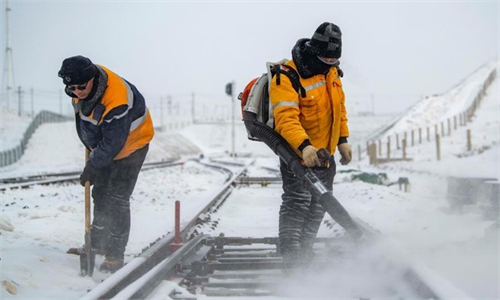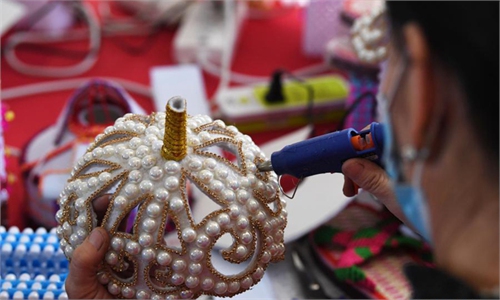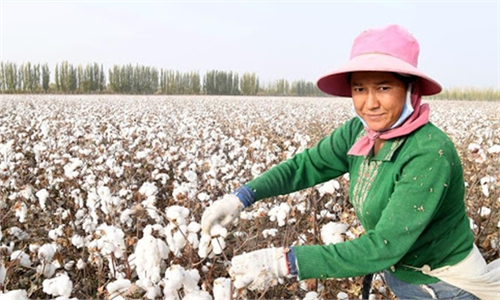Cotton textile firms in Xinjiang aren't required to hire graduates from training centers: regional industry association
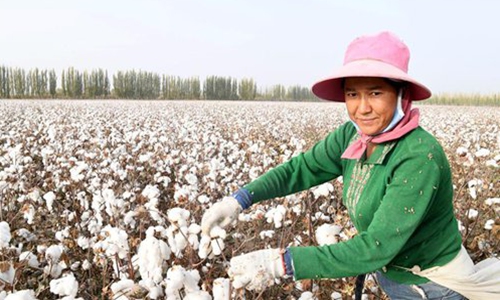
A woman works in a cotton field in Awat county, Northwest China's Xinjiang Uygur Autonomous Region, October 25, 2019. Photo: Xinhua
Cotton textile enterprises in Northwest China's Xinjiang Uygur Autonomous Region have never had institutional arrangements with vocational education and training centers in labor supply, nor have they had mandatory arrangements to hire graduated trainees to work in these enterprises, according to a report released by the Xinjiang Textile Industry Association.
The report, titled "Social Responsibility Report of the Cotton Textile in Xinjiang" was released on ts.cn on Sunday, introducing the history and development of the cotton textile industries in Xinjiang, showing how the industries and enterprises ensure decent work and protect employees' interests, the role of Xinjiang's cotton textile industry in the global supply chain and relations between the former vocational education and training centers and enterprises employment.
Anti-China forces in the West have been hyping "forced labor" topics in China's Xinjiang for a while, claiming that the cotton textile industries in Xinjiang use Uygurs and people from other ethnic groups from "camps" as "forced labors."
However, the report made by the regional textile industry association said that the cotton industry is one of the labor-intensive industries in Xinjiang. The vocational training centers, which were set up to fight terrorism and extremism, taught skills used in textile factories and some trainees independently chose to learn those skills. But there has no institutional arrangement between cotton textile enterprises and vocational centers to supply labor, according to the report.
The cotton textile enterprises in Xinjiang don't require job applicants to disclose their experience at vocational training centers but some applicants may voluntarily mention they learned skills at the centers. According to a senior executive of an enterprise, applicants and employees who have received trainings are preferred, according to the report.
Liu Yanning, honorary president of the Xinjiang Textile Industry Association, told at a press conference on Monday that the salaries offered by textile firms are roughly double the lowest salary standard in the region. Many residents have managed to shake off off poverty by working at those firms.
Workers' legal rights as well as their medical and other insurances are guaranteed, and the firms also provide dormitories, shuttle bus services and organize entertainment activities for employees, Liu explained.
"We welcome people to the region to get a deeper understanding of local firms' efforts in fulfilling social responsibilities and guaranteeing employees' rights," Liu said.
By hyping "forced labor" topics, the anti-China forces are also pressuring international companies and industries to strip China's Xinjiang region from the global industrial chain.
Chinese experts and industrial insiders have warned that such accusations based on lies will disturb the global industrial chain.
According to the Sunday report, China is the largest textile producer and consumer while Xinjiang has also become an essential part of the global supply chain, a bond connecting millions of cotton farmers and industrial workers in Xinjiang to industry players throughout the world. Xinjiang is a preferred sourcing place for major garment brands due to its high-quality cotton and more than 30 brands and buyers have stable, long-term partnerships with companies in Xinjiang.
The industry report showed that the cotton textile industry in Xinjiang has also become automated, driving up demand for textile and agricultural machinery along the supply chain. More than 50 percent of the region's cotton-picking machines are imported.
Being integrated into the global market, Xinjiang textile firms have improved their social responsibility performances, and joined Better Cotton Initiatives and other platforms to fulfill promises in social and business ethics.
Xinjiang is also holding business fairs and exhibitions to enhance ties with business partners and introduce the industry in Xinjiang to the world.
The report's research was conducted in May 2020 and included field trips, questionnaires, and interviews with 16 textile companies in Xinjiang. The research looked into the companies' operations and their social, environmental and economic performance and impact. The research team interviewed 25 business executives, talked to 1,320 employees in individual or group meetings and collected 1,427 valid questionnaires.
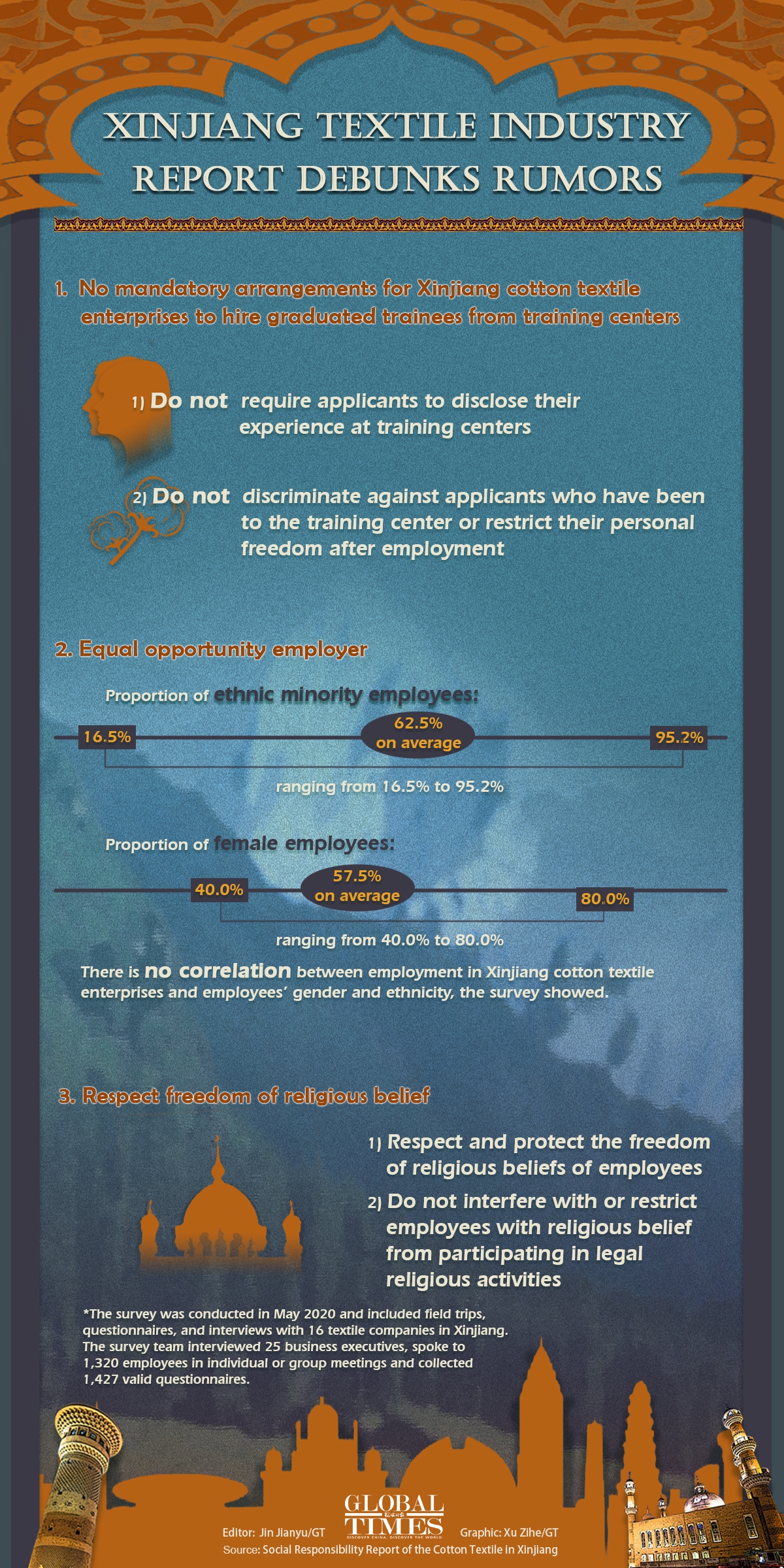
Infographic: GT

